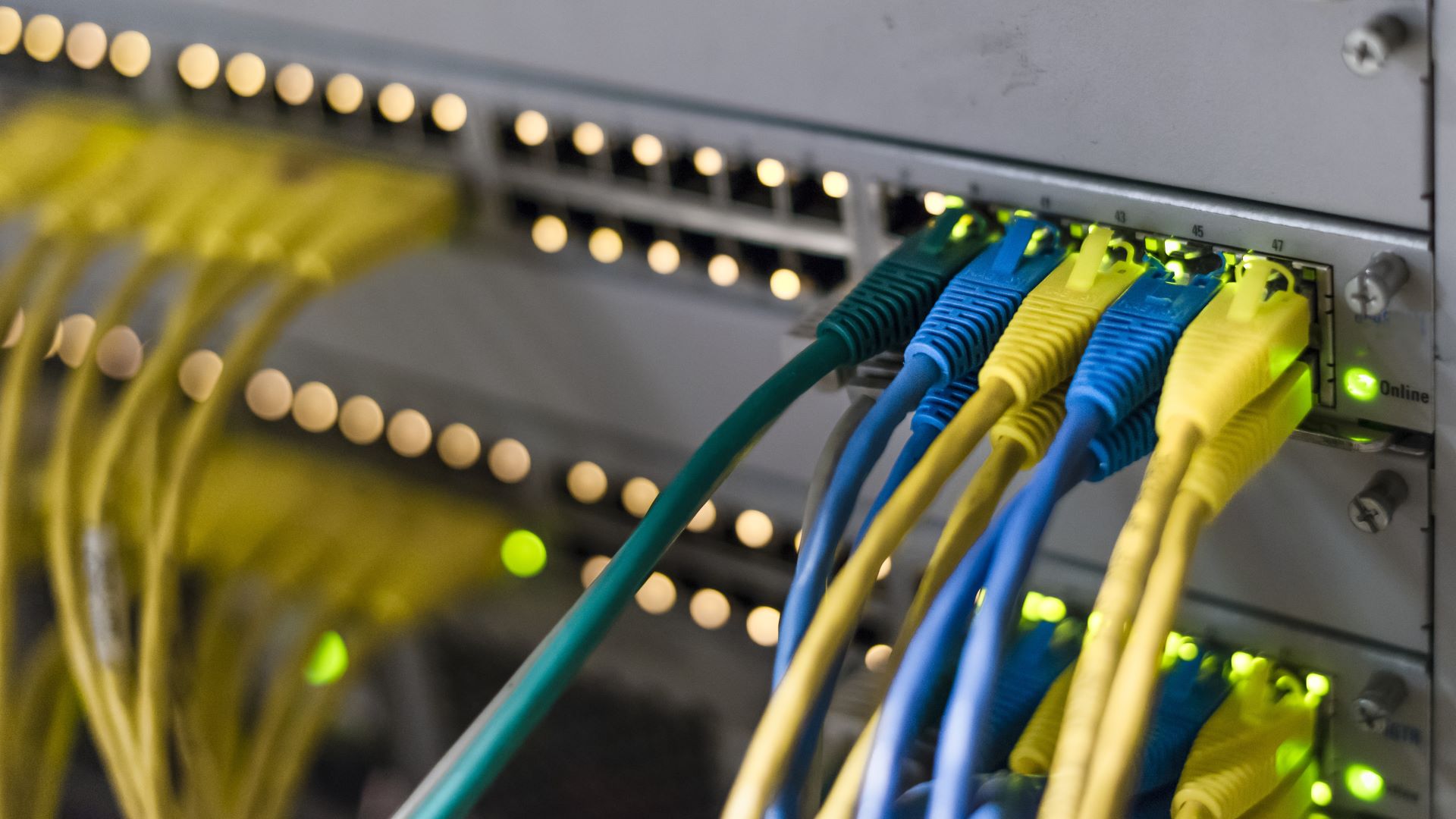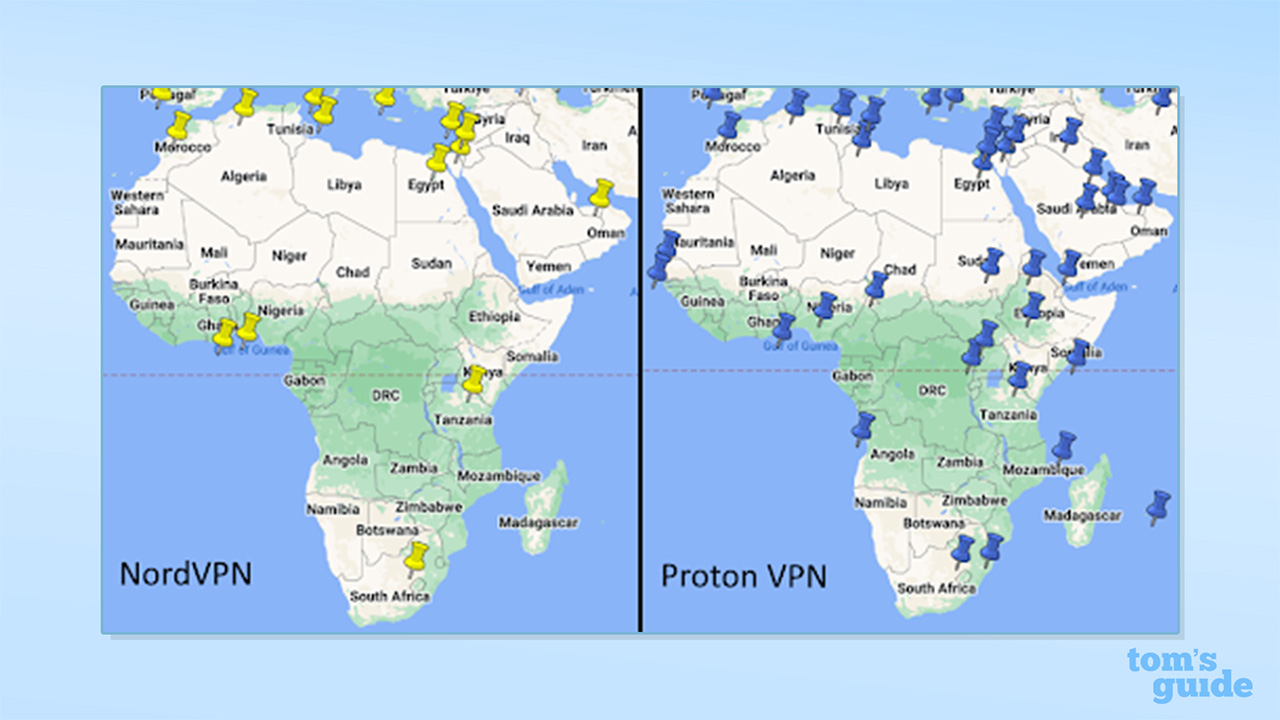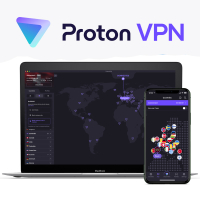Proton VPN has more than doubled its network size – but does it matter?
Does Proton VPN's network of over 8,000 servers really matter?

I'm midway through my latest batch of reviews of the best VPNs, and this is the time of year we pick up on smaller details that we may have missed. What's not small, though, is Proton VPN's current fleet of servers. Standing at 8,162 servers in 112 countries at the time of writing, it has more than doubled in size in the last few months.
This got me thinking about why the number of servers a VPN operates is presented as so important. Of course, it can be a factor in determining the reliability of its network, but it is by no means the be-all and end-all of how well a VPN performs.
Here, I'm going to run down the server changes Proton VPN has made, and whether they should be genuine decision-making factors when deciding which VPN to go for.
(This article was edited on October 5 to clarify Proton VPN's Smart Routing technology.)
Proton VPN – Swiss privacy for all
Proton is a well-known provider of consumer privacy tech, and Proton VPN is arguably its standout product. It's secure, very fast, and great for unblocking streaming sites. Prices start at $3.59 per month, and there's also a 30-day money-back guarantee so you can try before you commit.
Upgraded network size
I'm defining "network size" as the overall number of servers that a VPN has available for its customers to use. To a certain degree, more is better – a VPN with just 100 servers is going to get congested at popular times, users will find speeds slow to a crawl, and everyone's just going to have a bad time.
However, once you get above a few thousand, the quality of the servers is far more important. After all, leading providers like ExpressVPN and Surfshark only have around 3,000 servers worldwide, and their networks are some of the most stable and reliable in the world.
I spoke to David Peterson, General Manager of Proton VPN, about this increase in server count. He said: "Over the past few months, we have been expanding the number of servers to increase speeds, and to meet and stay ahead of a huge growth in demand. Without VC investors to please, we have the freedom to focus on investing into our infrastructure and new products and features."

There's also the question of "virtual servers." A virtual server is just that – virtual. They're usually physically located in countries that have excellent infrastructure like the Netherlands, Germany, and the US, but are configured to offer IP addresses in another country.
Virtual servers don't generally offer worse privacy than physical servers, but they are often rented from third parties. A reputable VPN that uses some virtual servers – NordVPN, for example – will make sure the data center is absolutely safe to use before renting from it. These servers can also suffer from occasional performance issues, especially when the actual server is thousands of miles away from its virtual location.
Proton VPN, however, is very bold in its claims that it only uses physical servers. Purchasing and maintaining this many servers is a huge investment, and is quite a statement by the company.
Peterson backed up these claims, saying: "Proton VPN only uses bare metal (physical, not virtual) servers that we can fully control all the way down to the base operating system level."
In short, network size doesn't mean all that much – but Proton is going about expanding its network in the right way.
Increasing network spread
I'm defining "network spread" as the number of countries a VPN has servers in. This is a much better ranking metric than network size, because every individual location has a tangible effect on a VPN's user base.
Proton VPN has grown from about 70 countries last year to a massive 112 at the time of writing. This is more than NordVPN (111), ExpressVPN (106) and Surfshark (100).
It's worth noting that Proton VPN uses "Smart Routing" to offer servers in countries that have poor infrastructure, or are subject to strong censorship. This is similar to a virtual server, but Proton VPN only uses its own servers for this. All this combined arguably puts Proton VPN at the very top of the pile when it comes to network quality.
"Growing the number of servers across the world was always the plan to support those who face internet censorship," said Peterson, "which is on the rise worldwide as countries seek to restrict and control citizens’ access to the internet. [This includes] Venezuela, Bangladesh, Brazil, Turkey, and Myanmar."

These claims are backed up by my research for our Proton VPN review. I noticed that the provider has focused a lot on some areas of the world that other providers neglect.
For example, Proton VPN offers 22 locations in Africa, compared to ExpressVPN and Surfshark's 6, and NordVPN's 7. Proton also covers Asia very well, with 42 locations, while NordVPN and Surfshark offer 32, and ExpressVPN offers 34. The Middle East is the same story, with 14 Proton locations, but only 5 from NordVPN and Surfshark, and 4 from ExpressVPN.
It just so happens that these are the regions that suffer most from government censorship – an issue Peterson made clear that Proton VPN is dedicated to.
Improving performance
It's no coincidence that the rapid expansion of Proton VPN's network has come with a clear boost in its connection speeds. In my last round of testing, NordVPN, Surfshark, and Proton VPN all managed to max out our 1 Gbps testing line when using their WireGuard-based protocols. Previously, while Proton VPN certainly wasn't slow, it lingered around the 400 Mbps mark – so in terms of performance, this network upgrade has been a big positive.
OpenVPN speeds are good, although not earth-shattering, at around 220 Mbps. That's middle-of-the-pack, but still much faster than the majority of domestic internet connections.
It's worth noting that despite these upgrades, Surfshark has maintained its spot as the fastest VPN – and as I mentioned above, it only has around 3,200 servers in its arsenal. However, Surfshark has always been incredibly fast, and evidently, no rival has quite worked out the recipe for its secret sauce.
Bottom line
Done correctly, upgrading a server network can have a huge impact on a VPN's performance, and clearly Proton VPN has gone about it the right way. However, I still recommend you look further than the headline numbers, as competitors that do perform marginally better in some areas have, on paper, far inferior networks when it comes to raw server count.

Mo is VPN editor at Tom's Guide. Day-to-day he oversees guides on the best VPNs, privacy, and cybersecurity content, which includes making sure all his recommendations are up to date, accurate, and as useful for the reader as possible. He's a daily VPN user himself – typically NordVPN, but he enjoys a variety – and as a digital privacy advocate he believes that every step should be taken to protect yourself online.
-
teemotox Been trying the free proton VPN. It'll push you to one that is in Europe at times so you start getting denied to some sites here because they think you're a hacker or make you prove you're a human. When I try to choose a US one after I check, it says you need to go pro. How can I test this when they do that?Reply -
efstajas Reply
Being hit with captchas and sometimes being blocked from sites outright is a problem with practically any VPN, simply because you're sharing the same IP address with many other users. If e.g. Google sees that the same IP is simultaneously sending traffic as 100 different users, they may want to make sure that it's actually you and not some script working with stolen access tokens or something like that. VPN providers can alleviate this by spreading their users across more individual IPs, but it's unlikely to completely fix that problem.teemotox said:Been trying the free proton VPN. It'll push you to one that is in Europe at times so you start getting denied to some sites here because they think you're a hacker or make you prove you're a human. When I try to choose a US one after I check, it says you need to go pro. How can I test this when they do that?

